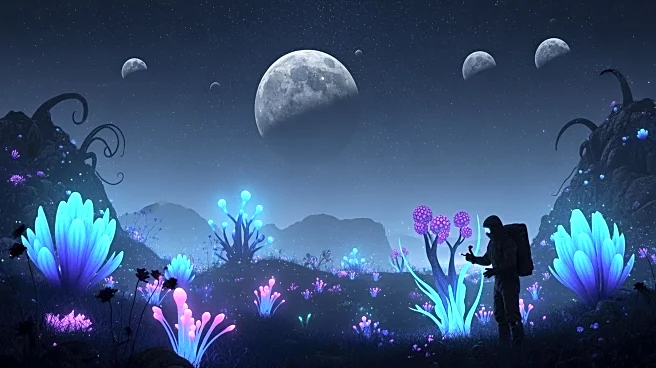What's Happening?
Sheri S. Tepper's science fiction novel 'Grass' has been recommended by New Scientist staff for its intriguing narrative and world-building. Published in 1989, the novel is set in a distant future where
humanity has colonized multiple planets. The story revolves around a mysterious plague threatening human existence, with the inhabitants of a planet called Grass seemingly immune. The Grassians, who are insular and obsessed with hunting alien creatures known as 'foxen,' hold the key to understanding the plague. Tepper's novel is noted for its dense, message-driven storytelling typical of 1980s science fiction, and its exploration of themes related to isolation and survival.
Why It's Important?
The novel 'Grass' is significant for its exploration of human survival in the face of existential threats, a theme that resonates with contemporary concerns about pandemics and environmental challenges. Tepper's work is praised for its imaginative world-building and the way it addresses complex social and ethical issues through science fiction. The book's focus on a plague and the search for immunity reflects real-world scientific endeavors to understand and combat diseases. Additionally, the novel's depiction of alien cultures and ecosystems offers insights into the potential diversity of life beyond Earth, encouraging readers to consider the broader implications of human expansion into space.










